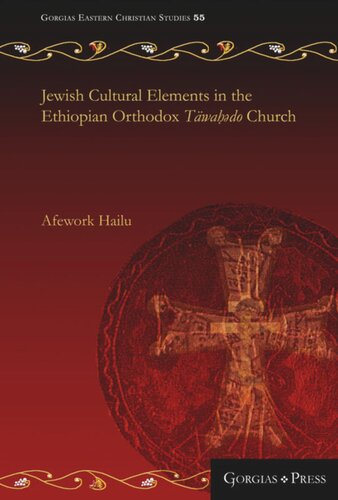

Most ebook files are in PDF format, so you can easily read them using various software such as Foxit Reader or directly on the Google Chrome browser.
Some ebook files are released by publishers in other formats such as .awz, .mobi, .epub, .fb2, etc. You may need to install specific software to read these formats on mobile/PC, such as Calibre.
Please read the tutorial at this link: https://ebookbell.com/faq
We offer FREE conversion to the popular formats you request; however, this may take some time. Therefore, right after payment, please email us, and we will try to provide the service as quickly as possible.
For some exceptional file formats or broken links (if any), please refrain from opening any disputes. Instead, email us first, and we will try to assist within a maximum of 6 hours.
EbookBell Team

4.4
52 reviewsThis book investigates the formation of the Jewish cultural profile of the Ethiopian Orthodox Täwaḥədo Church (EOTC), arguing that it was formed after the sixth century CE through gradual and complex socio-politico-cultural processes, which spanned many centuries. To this end, it employs historical and literary evidence to (re)examine the religious profile of the pre- and post- fourth century CE Aksumite kingdom, and probes the robust cultural developments of the empire in the sixth century in order to highlight the existence of a ‘Jewish/Judaeo-Christian’ identity. Aksum’s relationship with Jews across the Red Sea and its potential impact on the later development of Ethiopia’s Jewish culture is examined, particularly during the Zagʷe era, for which scant but important historical evidence is provided. Afework demonstrates that the impact of indigenous culture, coupled with the steady growth of a ‘Judaic’ heritage of the church, beginning in the sixth century, was accompanied by the emergence of an ‘Israelite’ and ‘Solomonic’ ethos. The translation of some of the works of ‘Church Fathers’ in and after the fourteenth century further augmented this impact. The Jewish cultural heritage, particularly, was fully developed and shaped during the fifteenth and sixteenth centuries, as is epitomised by the series of debates about the place of Sabbath and the further theologising and contextualising efforts regarding the ‘Judaic’ elements of the EOTC.